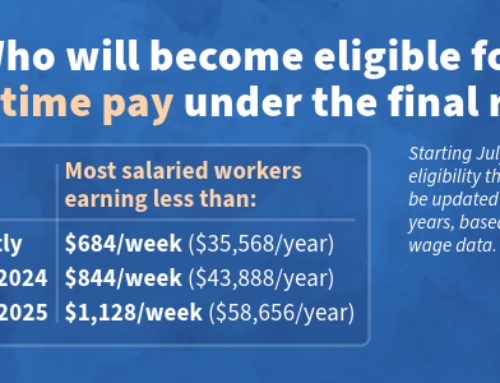During these trying times, employees may be forced to take out loans from their 401(k) plans to meet certain financial obligations. Fortunately, the Coronavirus Aid, Relief and Economic Security (CARES) Act provides some relief for borrowers. Following are the answers to several frequently asked questions (FAQs) about retirement plan loans.
What are the limits for 401(k) loans?
Previously, the maximum loan allowed was the lesser of $50,000 or 50% of a plan participant’s vested balance in the account. The CARES Act increases the limit to the lesser of $100,000 or 100% of the vested balance for loans made between March 27, 2020 and September 22, 2020. For example, if an employee has a vested balance of $500,000 in a 401(k) account, he or she can borrow up to $100,000, if the plan permits it.
How long can an employee take to repay the loan?
If an employee has a loan payment due between March 27, 2020 and December 31, 2020, the CARES Act says he or she can delay the repayment for up to one year. Thus, the usual five-year repayment maximum is stretched out to six years. This applies to qualified employees who are still working as well as qualified furloughed employees and those on a temporary leave of absence. Interest on the outstanding loan balance will continue to accrue.
How does an employee qualify for a loan repayment extension?
The employee must be able to show one of the following:
- The employee (or his or her spouse or dependent) has been diagnosed with COVID-19.
- The employee is financially affected by quarantine, job loss or reduced hours due to COVID-19.
- The employee is unable to work because of childcare needs caused by COVID-19.
- The employee experiences other extenuating factors determined by the Secretary of the Treasury.
Note: The employer does not need to verify this information and may rely on the participant’s certification for eligibility.
Which employers can adopt the CARES Act changes?
In some cases, firms that offer plan loans will have their provisions updated automatically. For others, the employer can choose to implement the changes, even if it previously did not permit loans. As with other 401(k) plan management decisions, employers must weigh the pros and cons of these provisions benefiting plan participants. Remember that plans are meant to be saving vehicles for retirement and that should remain the main objective of this employee benefit.
What is the deadline for adopting the CARES Act changes?
An employer has until the end of the 2022 plan year to incorporate the CARES Act provisions into plan documents. Conversely, a firm may amend its plan immediately to allow participants to benefit from them.
Should a plan participant arrange a 401(k) loan?
This is strictly a personal decision based on the circumstances for each individual. Traditionally, however, a plan loan is viewed as a last resort and other options are usually preferable. Plan participants are encouraged to gather all the necessary information and seek professional guidance.







Leave A Comment
You must be logged in to post a comment.